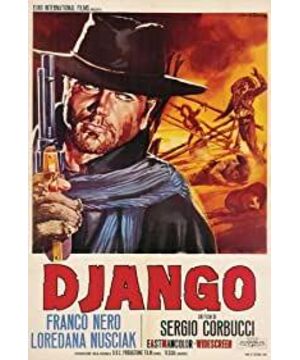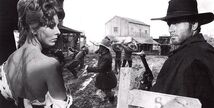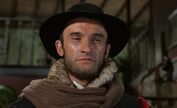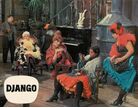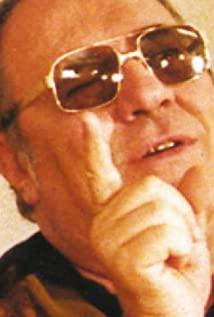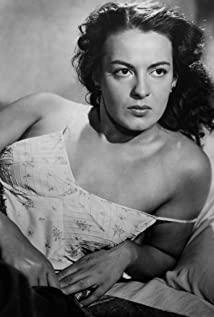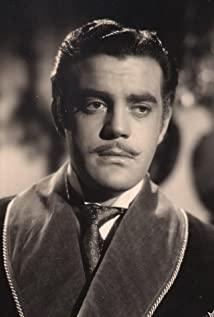This is transferred, not original. Source:
http://promlin.pixnet.net/blog/post/16746855-%E8%A7%80%E5%BD%B1%E9%9A%A8%E7%AD%86%EF%BC%9A%E9 %BA%BB%E8%BE%A3%E8%A1%80%E8%85%A5%E7%9A%84%E9%80%9A%E5%BF%83%E9%BA%B5%E8%A5 %BF%E9%83%A8%E7%89%87%E3%80%8A%E8%8D%92%E9%87%8E%E4%B8%80
Japanese ghost director Takashi Miike made a film this year. "Sukiyaki Western Django" (Sukiyaki Western Django), an attempt to combine the sword warrior movie and the western gunfight movie. This film is adapted from the 1966 Macaroni Western movie "A Wolf in the Wild" (Django), which is just the background of the story. Change to the Genpei War in Japanese history. I remember when I was a child I seemed to have watched this "Wolf in the Wild", and the theme song of this film was also included in a western film soundtrack I bought later. The theme song that combines Italian style and quasi-Elvis is very impressive. .
But having said that, between the Macaroni Westerns and the Japanese Samurai films, there is a very far-reaching historical origin. As early as 1964, the Italian director Sergio Leone had adapted Kurosawa Akira’s samurai ronin film "Yojimbo" (Yojimbo, 1961) into "A Fistful of Dollars" (A Fistful of Dollars). The westerns, which had been gradually decayed and old, took on a completely new look. This type of western film made by Italians was later nicknamed "Spaghetti Western" (Spaghetti Western). Because most of these films were shot in Italy and Spain, the desert landscapes presented in the films are almost all white, which is significantly different from the yellow sand everywhere in American Western films.
In addition to Sergio Leoni's "Dollars Trilogy" (Dollars Trilogy) and "Once Upon a Time in the West" (Once Upon a Time in the West), the most famous macaroni westerns are made by Sergio "A Wolf in the Wild" directed by Sergio Corbucci and starring Franco Nero. This film is enthusiastically loved by audiences all over the world, and is regarded as the most interesting western film. The image of the male protagonist "Django" (Django) in the film has become countless movies, animations and video games. The object of the game to imitate. It is said that more than one hundred unofficial sequels have been derived. In 1966 alone, four unofficial sequels were being shot in the same year. Because of the lenient copyright laws in Italy in the 1960s and 1970s, filmmakers often misappropriated other sellers without authorization. The title of the movie or the name of the person.
The opening of "A Wolf in the Wild" has become an extremely legendary classic scene. With the melodious theme song sounded, in the empty desert with drizzle, a lonely tramp dragged a coffin behind him, staggering in the mud. Move slowly on the sandy ground. Why does this person drag a coffin? Where is he going? Who or what is inside the coffin?
This lone gunman who claimed to be a strong brother came to a town on the border between the United States and Mexico. The local area was dominated by two conflicting evil forces. One side was the American Southern racist under the command of Major Jackson and the other. On the other side is the Mexican Revolutionary Army led by General Hugo. Frequent bloody clashes between the two groups have turned this town into a sparsely populated ghost town. Brother Qiang rescued a prostitute Maria (Maria) of American-Mexico descent by the edge of the swamp. The Mexicans flogged her because she escaped without permission. The American Southerners wanted to burn her to death because she sold her to the Mexicans. Brother Qiang stood up. And to come out to protect her, it is bound to face the provocations of these two gangs of fierce thugs at the same time.
The most hated of these two gangs are the racists in the U.S. South. It is said that after the end of the Civil War, racial discrimination in the U.S. South is still in the ascendant. Some veterans of the Confederate Army formed the "KKK "(Ku Klux Klan), launched a terrorist attack on black, Jewish, Asian and other ethnic immigrants. The racists wearing red turbans in this film are alluding to the "KKK". They are like a group of evil religious fanatics who regard the dark brown-skinned Mexicans as unshakable enemies. The leading Major Jackson is an extremely successful villain. Under his elegant and gentle appearance, he has a cold and cruel nature. He not only bullies the people and forcibly collects protection fees, but also will not be able to pay protection fees. The Mexicans hunted like turkeys. Compared with these horrendous racists, the Mexican Revolutionary Army on the other side is just a group of gangsters who were forced to flee the US-Mexico border and occasionally engage in sneaky acts.
Of course, this film does not intend to explore racial issues and the history of the Mexican Revolution in depth. The most important thing is to provide a difficult and sinister situation, so that the male protagonist can fully perform quick guns and kills. This kind of plot setting is reminiscent of Sergio Leoni's "Red Dead Redemption", in which the unknown gunman is also dealing with two opposing gangs. The protagonist of macaroni westerns is usually not a heroic knight with lofty ideals and a sense of justice, but the kind of "anti-hero" who has experienced the vicissitudes of life and watched the world's bleakness. The unnamed gunman in "Red Dead Redemption" originally only wanted to lure the two gangs into fighting each other to gain profit from it. It wasn't until he sympathized with the wife and the family's experience that he made up his mind to eradicate all the local villains. Brother Qiang, the lone gunman in "A Wolf in the Wild" is not a just and awe-inspiring savior. The audience will find that he is a guy who only wants revenge and selfishness. He is only forced to annihilate the gangsters driven by ruthless fate.
Brother Qiang is a sentimental and emotionally trapped tragic figure. He has forgotten how to love others many years ago. His love has been buried under the cross in the cemetery. The film does not describe his past experience in detail, but from a brief conversation between him and the tavernkeeper, we can still find some clues. Brother Qiang's favorite woman in his life was once killed by Major Jackson's men. At that time, he seemed to have gone away to participate in the Civil War. He was unable to help his lover because he was in a far, far away place at that time. Someone asked Brother Qiang who was in the coffin he was dragging behind. He replied that it was "a guy named Brother Qiang." The coffin contained himself himself. He would drag his painful memories and guilt all his life, until he killed all the enemies before he could bury his regret under the ground. Later, the Mexican director Robert Rodriguez borrowed this meaning in "El Mariachi Trilogy". The guitar box full of weapons also hides the hero’s loss. The pain and guilt of the lover.
Compared with Sergio Leoni's "The Red Dead Trilogy", the shooting level of this film is obviously not so refined, full of the rough texture of low-cost B-level films, but the director's technique is quite fluent and smooth, and several shootouts. All editing is handled very quickly and neatly. The style of this film is also more violent and bloody, there is not much nonsense from start to finish, one after another fierce gun battle, killing corpses all over the field, blood flowing, the number of deaths in the whole film is as high as 138 people, a record The record for the highest death toll in the history of Western cinema at that time. It was listed as an "18-certificate" by the Italian Telegraphic Procuratorate, and it suffered long-term bans from many countries, mainly because of the bloody scene of the Mexican general cutting off the ears of enemy spies. It is said that I don’t know if the director forgot or deliberately did not cut it. Later, in Quentin Tarantino's famous work "Reservoir Dogs", the classic "earth-cutting scene" that made people bloody was inspired by this film.
Traditional Chinese and English subtitles of "A Wolf in the Wild" (Django, 1966)...
http://www.shooter.cn/sub/detail.html?id=71206
Note: 1. This subtitle is suitable for the original Italian version, which may be different from the American dubbed version.
2. There is a typo in the Chinese subtitles. After downloading, please correct the 33rd sentence to "No, she can't stay here".
Reference:
Django (film)-From Wikipedia, the free encyclopedia
View more about Django reviews


